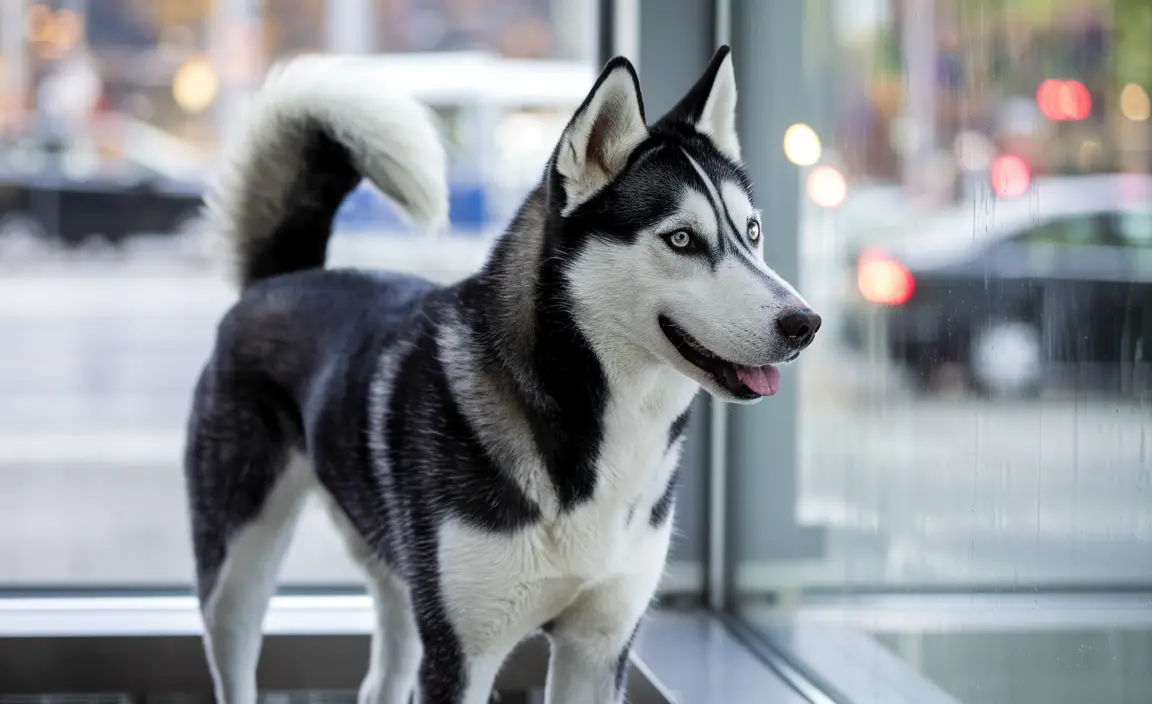Siberian Huskies are renowned for their extraordinary vocal abilities, transforming ordinary dog communication into a symphony of howls, whines, and what sounds remarkably like human speech. These dramatic canines aren't just barking—they're expressing a complex language deeply rooted in their genetic heritage and social nature.
If you've ever wondered why your Husky seems to have more to say than most dogs, you're not alone. Their vocal tendencies are a fascinating blend of evolutionary history, emotional intelligence, and pure canine personality.
The Genetic Roots of Husky Vocalization
Wolf Ancestry and Communication Heritage
Huskies share a direct lineage with wolves, animals famous for their sophisticated vocal communication. This genetic blueprint predisposes Huskies to use sound as a primary means of interaction. Their howls aren't just noise—they're a sophisticated communication system inherited from their wild ancestors.
Pack Communication Instincts
In their original Arctic environments, Huskies worked in tight-knit sled dog teams where vocal communication was crucial for survival. These dogs needed to coordinate movements, express warnings, and maintain social cohesion in harsh, isolating conditions. Their vocal traits are essentially a survival language passed down through generations.
Why Huskies Talk: Emotional and Social Expressions
Expressing Complex Emotions
Unlike many dog breeds that primarily bark, Huskies have a nuanced vocal repertoire. They "talk" to convey excitement, frustration, anxiety, and even what seems like pure entertainment. A Husky's vocalization can range from a low conversational mumble to a dramatic, high-pitched howl that sounds almost like a human scream.
Attention-Seeking Behavior
Huskies are incredibly intelligent and quickly learn that their unique vocalizations get results. If howling or "talking back" has previously earned them attention, treats, or a reaction, they'll continue using these communication strategies. It's their clever way of engaging with their human companions.
Triggers for Husky Vocal Behavior
Environmental Stimuli Response
Huskies are particularly responsive to environmental sounds. Sirens, musical instruments, or even high-pitched sounds can trigger an immediate vocal response. This isn't just random noise-making—it's a deeply ingrained instinctual behavior reminiscent of their wolf ancestors' communication methods.
Emotional and Physical Needs
Boredom, anxiety, excitement, and physical discomfort can all prompt a Husky to become vocal. These dogs require significant mental and physical stimulation. Without proper engagement, their vocalizations can become a way of expressing pent-up energy or emotional stress.
Managing and Understanding Husky Vocalization
Positive Training Approaches
While you can't (and shouldn't) completely eliminate a Husky's natural vocal tendencies, you can manage them. Consistent training, providing mental stimulation, and understanding the context of their vocalizations can help create a more harmonious communication style.
Recognizing Communication Signals
Learn to differentiate between attention-seeking sounds, genuine distress, and playful communication. Each type of vocalization provides insight into your Husky's emotional state and immediate needs.
Frequently Asked Questions
Why are Siberian Huskies so vocal compared to other dog breeds?
Huskies are vocal due to their wolf ancestry, pack communication history, and genetic predisposition. Their unique vocal abilities are a result of evolutionary adaptation and social communication strategies.
How can I determine if my Husky's screaming or howling is due to anxiety or excitement?
Observe accompanying body language. Excited vocalizations are typically accompanied by wagging tails and energetic movements, while anxiety-based sounds might include tucked tails, whale eyes, or trembling.
What are the best ways to reduce a Husky's vocalization when they are seeking attention?
Implement consistent training, ignore attention-seeking sounds, provide ample physical and mental stimulation, and reward quiet, calm behavior.
Can a Husky's howling or screaming be a sign of health issues?
Sudden changes in vocalization patterns can indicate pain, discomfort, or underlying health problems. If your Husky's vocal behavior dramatically changes, consult a veterinarian.
How can I train my Husky to reduce excessive vocal behavior, especially when they are bored or stressed?
Provide regular exercise, mental stimulation through puzzle toys, consistent training, and establish a routine that helps reduce anxiety and boredom-driven vocalization.






